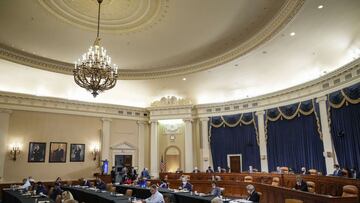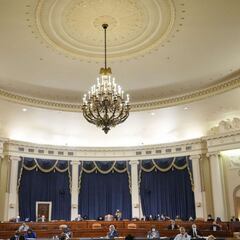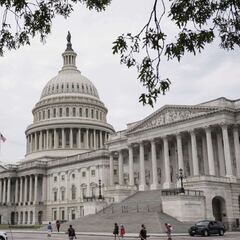What's included in the Democrats' plan for the Child Tax Credit and energy tax credit extension?
Ways and Means Committee release details on what tax credits and benefits are included in the $3.5 trillion reconciliation bill circulating on Capitol Hill.


Late this week, the House of Representatives Ways and Means Committee released new details on various aspects of the $3.5 trillion reconciliation bill, including those related to energy tax credits and the expanded child tax credit.
This bill comes after the passage of a trillion-dollar infrastructure package in the Seante. The bill was negotiated between a bipartisan ground of Senators and the White House. This bill is a narrower piece of legislation than the American Jobs Plan, a sweeping infrastructure package that the Biden administration has proposed.
Many conservative Democrats and centrist Republicans worked together on the legislation after rejecting President Biden's broad definition of infrastructure. The group chose to drop the elements of the plan focused on human infrastructure, which would have made targeted investments in workers that fuel the economy.
Two of the most anticipated questions circulating around reconciliation bill on whether it would include an extension to the Child Tax Credit, which is set to return to its earlier rendition after this year.
House Democrats announced additions to the $3.5 trillion reconciliation package, regarding an extension to the Child Tax Credit, health care, and more. https://t.co/lH6kAE9T3j pic.twitter.com/bMgMqj4Wv2
— AS USA (@English_AS) September 11, 2021
Child Tax Credit
In addition to including elements from the American Jobs Plan, Democrats working on the reconciliation package also took some of the measures included in the American Families Plan. These include topics like paid family leave and the extension of the Child Tax Credit’s current structure through 2025.
Earlier this year, President Biden announced his support for making the changes to the credit’s structure passed under the American Rescue Plan permanent, through the American Families Plan. During the announcement, President Biden spoke to how the changes “benefited nearly 66 million children, and it was the single largest contributor to the plan’s historic reductions in child poverty.”
Another popular aspect included in the reconciliation bill is a federal family leave policy.
Climate and energy credits
The Ways and Means Committee have and will continue to release information on what made it into the final draft of the reconciliation bill. So far, a few details on the funds allocated to combat climate change and transition to greener energy sources have emerged.
These include “support clean energy investment and deployment,” which will lead to the creation of good-paying jobs and supporting the energy transition to renewable sources. When the Biden administration had announced the details of his American Jobs Plan, he proposed “a ten-year extension and phase down of an expanded direct-pay investment tax credit and production tax credit for clean energy generation and storage.”
These suggestions were taken as one element put forward by the committee that focuses on increasing productivity and investment in the wind and solar power sector. This would be done by increasing the production tax rate for solar and wind power companies to the fullest extent possible through 2031 and then gradually phase them out.
Companies that build solar energy facilities in low-income communities could also benefit from an energy tax credit. The value of this credit would be based on the benefits, be it health or economic, that are brought into these communities. The announcements from the House committee yesterday affirm this commitment and include language to ensure that strong labor protections are applied to businesses that receive these credits.
the green energy tax credits, by the way, include prevailing wage provisions -- something that had been on the minds of a lot of Democrats (see this for context https://t.co/a6DpB9zbeR)
— Tony Romm (@TonyRomm) September 11, 2021
Related stories
Chairman Neal of the Ways and Means Committee stated that these investments ”allow us to both address our perilously changing climate and create new, good jobs, all while strengthening the economy and reinvigorating local communities.”
Rep. Neal hopes that “Taken together, these proposals expand opportunity for the American people and support our efforts to build a healthier, more prosperous future for the country.”
The bill's fate is uncertain as the Democrats hope to pass the package through a process known as budget reconciliation. While this allows the party to pass the legislation with a simple majority, that would require that all Democrats in the Senate vote in favor of the package. Based on the public comments of more conservative Democrats, like Kyrsten Sinema of Arizona and West Virginia's Joe Manchin that is seeming more unlikley.

